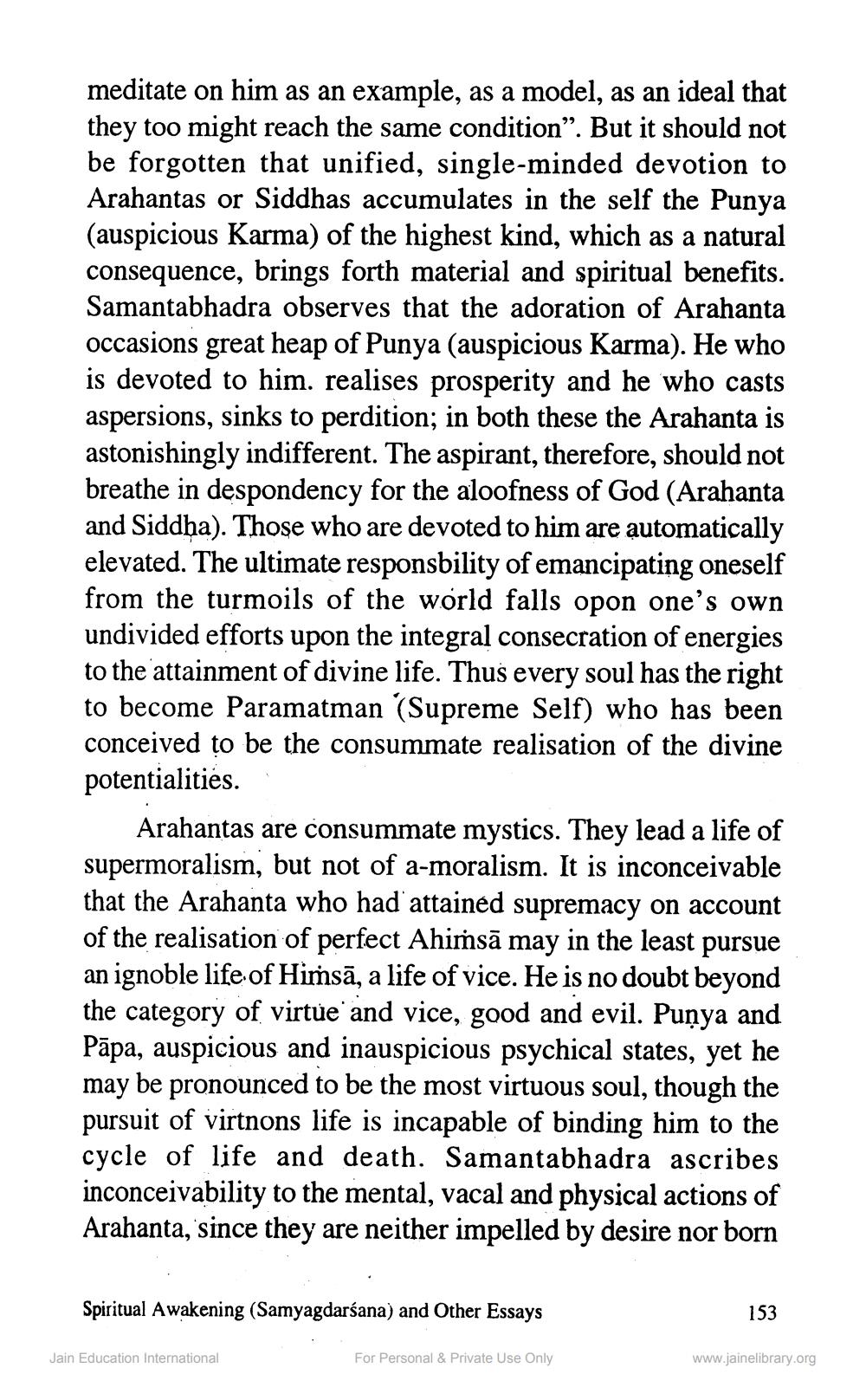________________
meditate on him as an example, as a model, as an ideal that they too might reach the same condition”. But it should not be forgotten that unified, single-minded devotion to Arahantas or Siddhas accumulates in the self the Punya (auspicious Karma) of the highest kind, which as a natural consequence, brings forth material and spiritual benefits. Samantabhadra observes that the adoration of Arahanta occasions great heap of Punya (auspicious Karma). He who is devoted to him. realises prosperity and he who casts aspersions, sinks to perdition; in both these the Arahanta is astonishingly indifferent. The aspirant, therefore, should not breathe in despondency for the aloofness of God (Arahanta and Siddha). Those who are devoted to him are automatically elevated. The ultimate responsbility of emancipating oneself from the turmoils of the world falls opon one's own undivided efforts upon the integral consecration of energies to the attainment of divine life. Thus every soul has the right to become Paramatman (Supreme Self) who has been conceived to be the consummate realisation of the divine potentialities.
Arahantas are consummate mystics. They lead a life of supermoralism, but not of a-moralism. It is inconceivable that the Arahanta who had attained supremacy on account of the realisation of perfect Ahiṁsā may in the least pursue an ignoble life of Himsā, a life of vice. He is no doubt beyond the category of virtue and vice, good and evil. Punya and Pāpa, auspicious and inauspicious psychical states, yet he may be pronounced to be the most virtuous soul, though the pursuit of virtnons life is incapable of binding him to the cycle of life and death. Samantabhadra ascribes inconceivability to the mental, vacal and physical actions of Arahanta, since they are neither impelled by desire nor born
Spiritual Awakening (Samyagdarśana) and Other Essays
153
Jain Education International
For Personal & Private Use Only
www.jainelibrary.org




